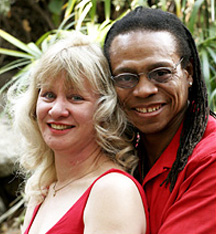 One of the things Vernon did with his substance abuse groups was a lecture on spirituality and religion. This included people of different racial groups, economic classes, spiritual persuasions, or none at all. Many people were very angry at God when they came in for recovery. It came down to people talking about connection, a sense of inner peace, of being connected to something bigger. Louise is French, and in Frenc,h they say je ne sais quoi. “I don’t know what it is, but I know what it is when I feel it. I know when it’s not there. Now that I’m sober and I’ve had a chance to work with truth, honesty, forgiveness, and letting go of shame, I can feel that connection again.” People have different ways of describing how they access it or what the access point is for them. They describe strategies that have nothing to do with going inside a structured religious program. One patient said to Vernon, “Religion is mostly all your dos and don’ts, mostly don’ts.”
One of the things Vernon did with his substance abuse groups was a lecture on spirituality and religion. This included people of different racial groups, economic classes, spiritual persuasions, or none at all. Many people were very angry at God when they came in for recovery. It came down to people talking about connection, a sense of inner peace, of being connected to something bigger. Louise is French, and in Frenc,h they say je ne sais quoi. “I don’t know what it is, but I know what it is when I feel it. I know when it’s not there. Now that I’m sober and I’ve had a chance to work with truth, honesty, forgiveness, and letting go of shame, I can feel that connection again.” People have different ways of describing how they access it or what the access point is for them. They describe strategies that have nothing to do with going inside a structured religious program. One patient said to Vernon, “Religion is mostly all your dos and don’ts, mostly don’ts.”
Many people don’t associate excessive guilt with barriers to a spiritual connection, but relieving themselves of guilt with self-forgiveness and releasing resentments toward others is key. Virtues are positive energies that are an important part of wellness and recovery. Many patients understand this connection once they get sober and have a chance to use the 12 Step Program of Alcoholics Anonymous (AA).
The Program is accessible to any person, regardless of their spiritual or religious observance. One of our colleagues in the Addiction world, Chana (pronounced “Hana,” like the road to Hana, Hawaii) Carro, is a licensed independent Substance Abuse Counselor with over 24 years’ experience. She has extensive experience with the 12 Step program and claims, “If you only had one night for recovery, it’s best spent in a 12 Step room, because there’s an endless possibility for connectedness.” Opening recovery up to God or a higher power allows people to get past a lot of the confusion with different religious edicts, rules, bylaws, and “my way or the highway” attitude that could block a person from getting the fulfillment and healing they need. If this were not adequate, there wouldn’t be all of the offshoots of the 12 Step Program. There wouldn’t be all of the people who say this has made a difference in their lives. It wouldn’t be international. It wouldn’t be so vital.
We hope you’ve enjoyed these blogs on Addiction and Recovery. The next series of blogs will focus on hope, empowerment, and wellness in the recovery process.
Vernon and Louise Barksdale
